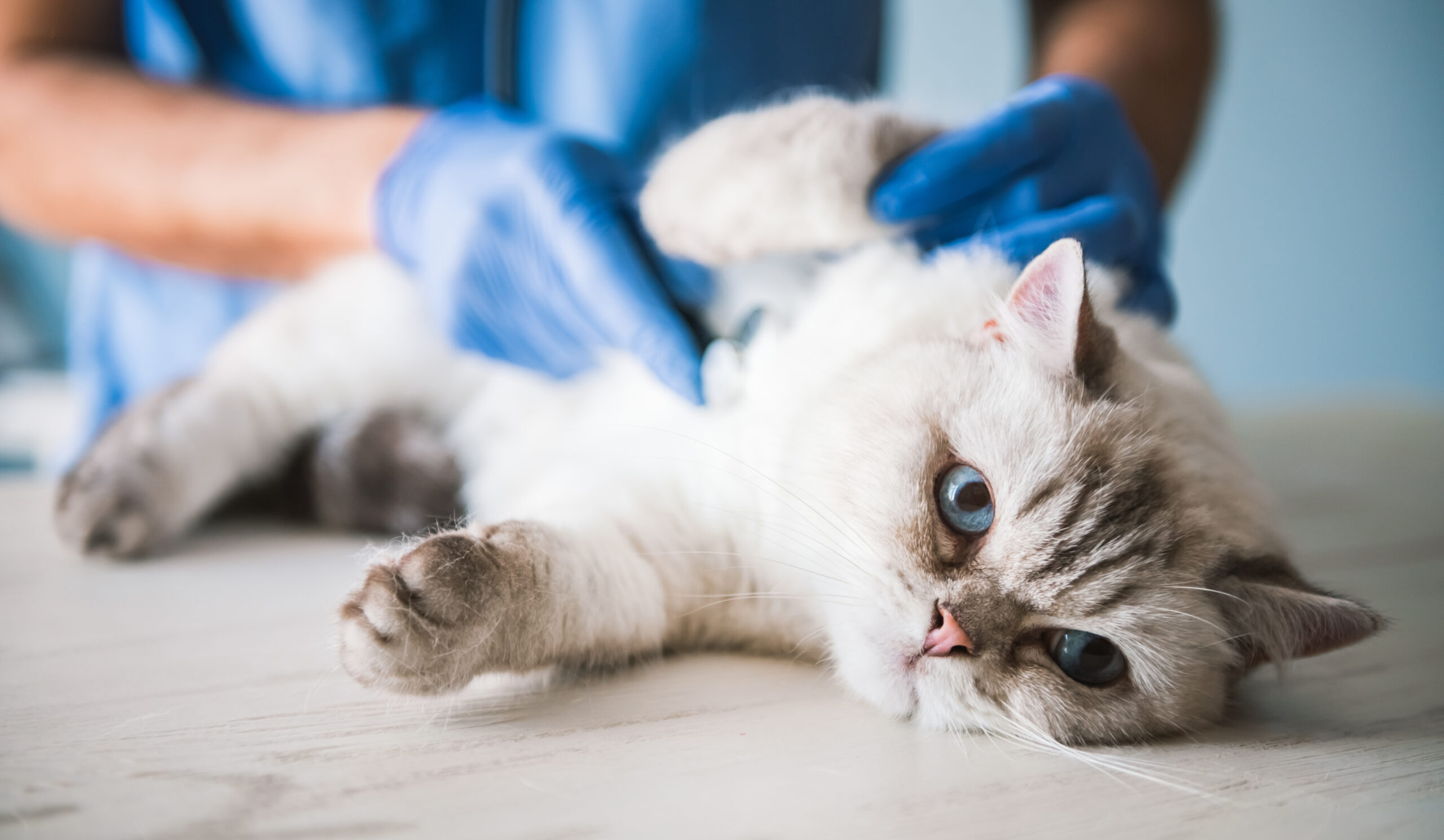NC State Veterinary Medicine Research Roundup, September 2021

A look at some of the latest published studies from the CVM.
Refining BRAF-Targeted Cancer Therapy
The findings of a new clinical trial suggest that BRAF-mutated canine invasive urothelial carcinoma (InvUC) offers a promising animal model to help improve the same type of therapies in humans.
The BRAF gene is responsible for making proteins that send signals in cell growth. BRAF mutations are the most common type of mutations in tumor cells, occurring in most melanomas. BRAF mutations can increase cancer growth and spread.
The new research, co-authored by Matthew Breen and published in Molecular Cancer Therapeutics, explores the viability of the drug vemurafenib to induce fast cancer remission and the possibility of characterizing a naturally occurring canine cancer model that closely features human cancer features.
Researchers found that the safety, antitumor activity and pharmacodynamic effects of vemurafenib closely mimics what has been reported in humans. Further results of the trial may lead to more effective BRAF-targeted therapies for humans.
Read the study here.
Understanding Itch

Two protein receptors channels, TRPV1 and TRPA1, are involved in the transmission of histamine-induced itchy skin, according to research co-authored by Santosh Mishra, Wolfgang Baumer and Jenny Wilzopolski.
Transient receptor potential (TRP) ion channels play important roles in the sensation of itch. Researchers found that TRPV1 and TRPV2 inhibition led to a reduction of different types of histamine receptor subtypes that induce itch.
Biomolecules published research. Read the study here.
COVID-19 and Antimicrobial Resistance
The first survey to explore the global impact of COVID-19 on antimicrobial resistance (ASMR) among countries in a World Health Organization-guided surveillance system co-created at the NC State College of Veterinary Medicine, finds significant impacts the virus is making in the vast AMR fight.
Researchers surveyed countries that are part of the WHO Antimicrobial Resistance and Use Surveillance Surveillance System (GLASS), noting the impacts COVID-19 has had on AMR surveillance, prevention and control.
A large majority of countries reported limited ability to work within AMR partnerships, funding decreases and reduced numbers of nursing, medical and public health staff for AMR relief. A majority also reported reduced availability of scientific materials needed to combat AMR.
Read the study, published in the Journal of Antimicrobial Chemotherapy, here.
Genetic Causes of Chronic Respiratory Tract Infections

A mutation within the NAT10 gene found within a Schnauzer suggests an associated mutation or possible new genetic cause of chronic respiratory infections in dogs, according to new research.
The NAT10 mutation occurs in humans with ciliary aplasia, a rare congenital disease, and is often a cause of recurrent respiratory infections, but it is rarely described in the context of veterinary medicine.
Authors of the study, published in the Journal of Veterinary Internal Medicine, include Kathryn Meurs, Natasha Olby, Adam Birkenheuer and Barry Hedgespeth.
Read the study here.
Targeted Gut Health Treatments
Research co-authored by Liara Gonzalez finds that small intestinal organoids, or enteroids, closely mimic in vivo intestinal epithelial responses to gut pathogens, offering a promising model to study host-pathogen interactions in the gut of pigs and improve gut health.
Just a few studies have evaluated the development of enteroids in species other than humans and rodents. While porcine enteroid cultures have been described, little is known about their functional responses to pathogens and associated virulence. Insights obtained through a porcine model could accelerate veterinary therapeutics aimed at improving gut health.
Veterinary Research published the study. Read the study here.
Health of Galapagos Tortoises
Researchers have analyzed fatty acid concentrations in San Cristóbal Galápagos tortoises, providing vital information on the nutrition, immune status, and reproductive health of the endangered species.
It is believed to be the first study of its kind and provides an important starting point for future investigations of how fatty acids are affected in Galápagos tortoises, establishing a possible way to monitor changes in health.
Greg Lewbart and the class of 2021’s Kushboo Dass are among the co-authors. PeerJ published the research.
Read the study here.
Impacts of Feline Epilepsy
A survey of the impacts of feline epilepsy on cats and their owners found that adequate seizure control and close cat-owner relationship may play an important role in mitigating the impact of epilepsy.
Epilepsy, characterized by recurrent seizures, is the most common neurological condition reported in cats. The condition is treated by using anti-epileptic drugs, often multiple times a day. The study, which surveyed owners from 22 countries, assesses factors associated with quality of life in cats with epilepsy and the burden of care in their owners.
Vet Record published the research, which was co-authored by Karen Muñana and Julie Nettifee. Read the study here.
~Jordan Bartel/NC State Veterinary Medicine


